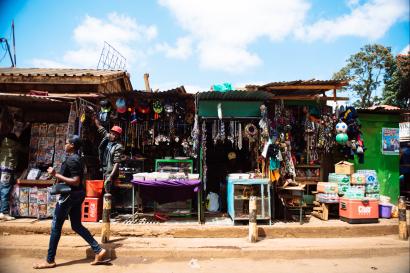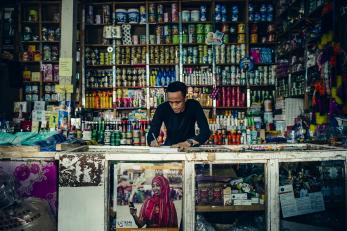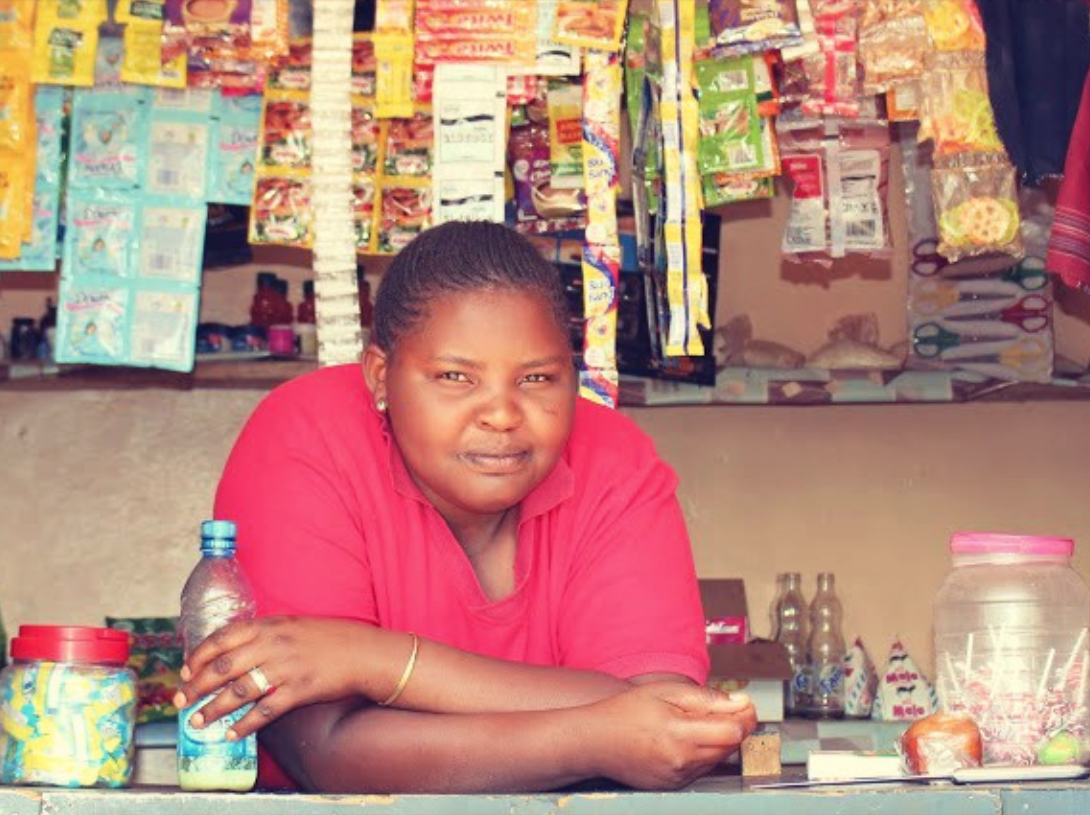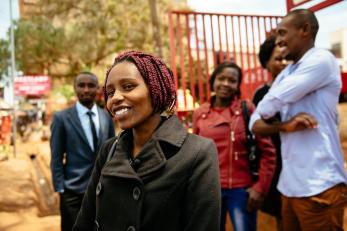Breadcrumb
Sokowatch: Reinventing informal retail

The vast majority of all retail purchases in Africa are made at small shops. Over ten million informal shops sell over £135 billion in goods each year. But despite their importance to local economies and the communities they serve, products at these stores are frequently out of stock, and when they are available, it’s often at a high price.
Why?
The logistics are prohibitive: Shop owners often have to close their shops to travel to central markets to purchase health and consumer packaged goods. Restocking the shelves is costly, and it’s time-consuming.
This inefficient (nearly non-existent) distribution system increases prices and limits communities’ access to potentially lifesaving medicine, sanitation products and nutritious food, at the same time stifling business growth for small shopkeepers, who have limited access to financial services, and lack the proper business management tools they need to grow and prosper.
Revolutionizing access to essentials
There’s a solution — a way to support these small shop owners and guarantee access to essentials for the communities who rely on them.
A last-mile distribution platform, Sokowatch enables small shop owners to restock essential goods at the tap of a button.
Using a basic mobile phone, shop owners send Sokowatch their orders and local, salaried Sokowatch agents fulfill the orders from central distribution hubs, delivering them in two hours or less. Using its history of purchasing data, Sokowatch can predict incoming orders from shop owners and pre-stock tuk-tuks (a three-wheeled motorised vehicle) to ensure quick delivery. As shop owners place more orders, Sokowatch collects more data to plan its inventory and optimize its operation. Sokowatch even offers financing to these microentrepreneurs, and its use of predictive data helps it anticipate and plan for those needs as well.

Based in Nairobi, Sokowatch reduces expenses for shop owners, provides full-time employment to its sales agents, and – most importantly – ensures affordable access to the health, sanitation and consumer household products that low-income communities need to live healthy, productive lives. At the same time, Sokowatch allows consumer goods companies such as GlaxoSmithKlein, Unilever and Procter & Gamble to have consistent and reliable distribution channels to reach underserved communities.
Now, a small shop owner in the informal settlements of East Africa can order inventory on her phone to ensure she has contraceptives, pain relievers and healthy products on the shelves, get the goods delivered on demand, and take advantage of credit terms for the first time — all without having to leave or close her shop.
Customer spotlight

Emily is the owner and operator of Wamekana Shop. She’s placed over 200 orders for beneficial products at a combined value of over $7,700 since she started ordering from Sokowatch in April 2017. Emily was also selected for Sokowatch’s credit program, which she used to grow her orders to be 234 percent higher in monthly volume than they were prior to credit access.
“Thank you, Sokowatch, for extending credit to help grow my business. Now I do not have stock-outs in my shop. I appreciate Sokowatch’s app and delivery service that allows me to continue selling to my customers without ever closing my shop to source products from wholesalers. It has saved me time and money that I can use to grow my shop.”
Building connections for greater impact
We believe supporting improvements in last-mile distribution and logistics is key to securing the livelihoods and wellbeing of the under-served. All people should have access to the products and services they need to thrive, and small entrepreneurs should have access to the services needed to keep their shelves stocked and generate greater income.
We see Sokowatch as an instrumental tool for achieving such access, a digital key that allows shop owners greater control over their livelihoods. Tens of thousands of retail shop owners across Kenya and Tanzania and now Uganda and Rwanda are using Sokowatch to enhance their business practices and better serve the communities who rely on them for essentials like soap, flour and medicine.

Sokowatch is transforming communities across Africa by revolutionising access to essential goods and services — empowering shop owners and the communities who depend on them. It’s real technology for good, and we look forward to supporting the growth that’s to come.